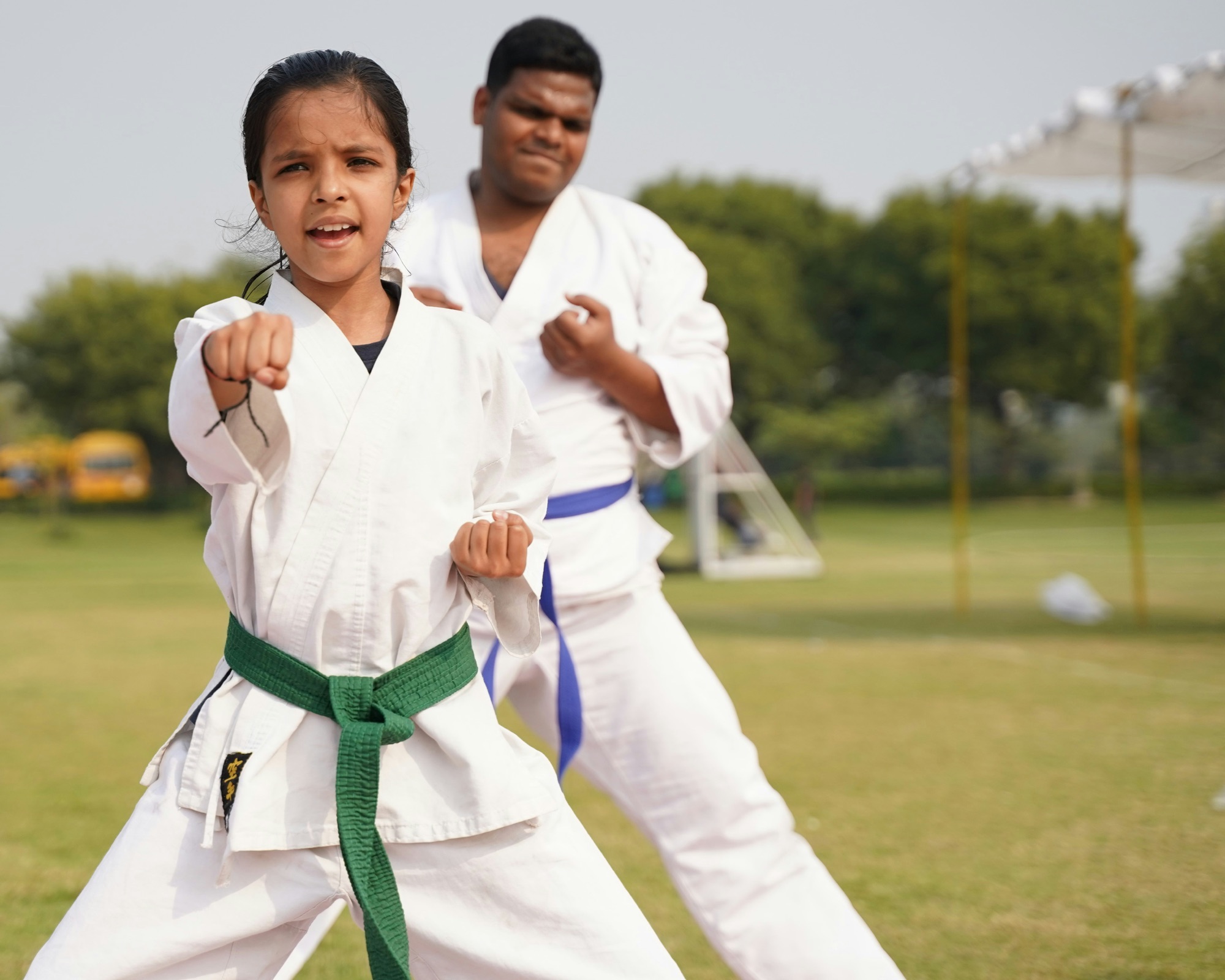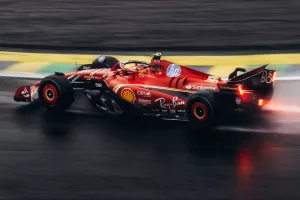Karate, one of the most well-known martial arts, has its roots in Japan and is practiced worldwide for various purposes, including self-defense, physical fitness, and personal discipline. For centuries, Karate has been praised for its structured techniques, rigorous training, and philosophical underpinnings. However, when it comes to self-defense, many people wonder whether Karate is truly an efficient and practical martial art for real-life situations.
This article delves into the principles of Karate, its applicability in self-defense scenarios, and the factors that determine its effectiveness in protecting oneself in dangerous or unpredictable situations.
Understanding Karate: The Basics
Karate, which translates to “empty hand,” is a striking-based martial art that primarily focuses on punches, kicks, knee strikes, and open-hand techniques. It also includes some grappling, joint locks, and takedowns, although these elements are not as central as the striking techniques.
Karate is structured around kata (forms), kihon (basic techniques), and kumite (sparring). Each of these elements plays an important role in building the practitioner’s skills:
- Kata involves practicing pre-arranged sequences of movements that simulate combat against imaginary opponents. This builds muscle memory and refines techniques.
- Kihon teaches the foundational movements, strikes, blocks, and stances that form the basis of Karate techniques.
- Kumite focuses on sparring, which allows students to apply their techniques in controlled, competitive environments.
Karate emphasizes precision, speed, and power in its techniques, training students to respond quickly and effectively in confrontational situations.
Key Components of Karate That Support Self-Defense
While Karate’s structured format is often seen in competitions and traditional dojos, many of its techniques and principles can be effectively applied in real-world self-defense situations. Here are some key components of Karate that support its use in self-defense:
1. Striking Power and Efficiency
One of the most important aspects of self-defense is the ability to neutralize a threat quickly. Karate emphasizes powerful strikes, using punches, kicks, and elbow strikes to generate maximum impact. The focus on targeting vital areas of the body (such as the face, neck, solar plexus, and groin) helps make these strikes efficient and potentially incapacitating when applied correctly.
- Punches: Karate teaches powerful, straight punches (often referred to as gyaku zuki) that can be executed with speed and precision. These can be directed at an attacker’s vulnerable areas, making it effective for self-defense.
- Kicks: Kicks, particularly to the legs and torso, are designed to create distance or cause serious damage. The use of low, quick kicks to the legs can destabilize an opponent or deter an attack.
2. Blocking Techniques
Karate includes a wide range of blocking techniques designed to deflect or absorb an opponent’s strikes. These blocks, such as gedan barai (low block), age uke (rising block), and uchi uke (inside block), can be used to prevent an attacker’s punch, kick, or grab from connecting with its target. In self-defense situations, effective blocking is crucial for protecting oneself while creating opportunities to counterattack.
- Versatility of Blocks: Karate blocks are versatile and can be adapted to deal with various types of attacks, including strikes with weapons or open-handed blows.
- Simultaneous Defense and Offense: In many Karate styles, blocks are often accompanied by strikes, allowing for a seamless transition from defense to offense.
3. Conditioning and Physical Fitness
Karate training focuses heavily on building physical conditioning, strength, flexibility, and endurance. This conditioning is valuable in self-defense scenarios, where stamina, balance, and strength are important for reacting to a threat, escaping, or defending against multiple attacks.
- Improved Reflexes: Regular Karate practice hones reflexes, enabling faster reaction times in stressful situations.
- Enhanced Balance: Karate’s emphasis on stances and footwork improves balance, which is critical for staying on your feet during a confrontation.
4. Situational Awareness
In addition to physical techniques, Karate teaches situational awareness and mindfulness. Practitioners are encouraged to be fully present and aware of their surroundings, which is a key aspect of self-defense. Recognizing potential threats early allows individuals to avoid confrontations before they escalate, or to position themselves advantageously if a confrontation becomes unavoidable.
- De-escalation: Karate emphasizes avoiding violence whenever possible. By fostering situational awareness, practitioners are more likely to identify dangerous situations and de-escalate or exit them before physical conflict arises.
5. Mental Discipline and Confidence
Karate emphasizes mental discipline, focus, and confidence—qualities that are essential in high-pressure situations. In self-defense, remaining calm and composed is vital. Karate teaches practitioners how to control their emotions and maintain a clear mind during conflict, which can be the difference between effectively defending oneself or being overwhelmed by fear or panic.
- Confidence in Conflict: A confident demeanor can deter potential attackers, as aggressors often target individuals they perceive as weak or vulnerable. Karate instills a sense of self-assuredness that can discourage confrontations before they even begin.
- Stress Management: The mental toughness developed through Karate training helps practitioners manage stress and fear in real-life threatening situations, allowing them to think and react quickly.
Limitations of Karate for Self-Defense
While Karate offers several tools that are useful for self-defense, it’s important to understand that it has limitations, particularly in situations that involve close-quarters combat, grappling, or weapons. Here are some potential drawbacks to using Karate in real-world self-defense:
1. Lack of Ground Fighting Techniques
Karate is primarily a stand-up striking martial art, and it does not heavily emphasize ground fighting techniques. In many self-defense situations, an attacker may attempt to grapple, take the fight to the ground, or restrain their opponent. In these scenarios, Karate practitioners may find themselves at a disadvantage if they are not trained in ground fighting skills such as those taught in Brazilian Jiu-Jitsu or Judo.
2. Limited Focus on Weapons Defense
While some Karate styles include defenses against weapons such as knives, clubs, or guns, these techniques are not always a central part of Karate training. In modern self-defense scenarios where attackers may be armed, a deeper understanding of weapons defense techniques—such as those taught in martial arts like Krav Maga—may be necessary.
3. Traditional vs. Practical Application
Traditional Karate is often taught in a structured, formalized manner that may not directly translate to the chaos of a street altercation. While Karate sparring (kumite) is helpful for building reflexes and technique, self-defense situations are often less predictable and more dynamic than what is practiced in a controlled dojo setting.
- Sparring Limitations: Some forms of Karate sparring are based on point systems, where strikes are pulled or lightly applied. While this builds speed and control, it may not fully prepare practitioners for the intensity of real-life confrontations.
4. Inflexibility with Adaptations
Karate’s formal techniques can sometimes be rigid in their application, which may limit adaptability in unpredictable self-defense situations. In real-world scenarios, flexibility and improvisation are key. Karate practitioners may need to supplement their training with other martial arts or adapt their Karate techniques to ensure they’re effective in various contexts.
How to Make Karate More Effective for Self-Defense
While Karate is an efficient martial art in many respects, combining it with other disciplines or modifying its techniques for practical self-defense can make it even more effective. Here are some ways to enhance your Karate training for real-world self-defense:
1. Cross-Training in Grappling Arts
To address Karate’s lack of ground-fighting techniques, practitioners can cross-train in grappling-based martial arts like Brazilian Jiu-Jitsu, Judo, or Wrestling. This allows them to defend themselves in situations where the fight goes to the ground or where grappling is involved.
2. Incorporating Weapons Defense Training
Adding weapons defense training, such as those found in Krav Maga or Filipino Martial Arts (FMA), can complement Karate and provide practitioners with more tools for dealing with armed attackers. This helps make Karate more versatile in modern self-defense scenarios.
3. Practical Sparring and Self-Defense Drills
While traditional sparring is valuable, incorporating more realistic self-defense drills that simulate real-life situations (such as multiple attackers or attacks from behind) can prepare Karate practitioners for the unpredictability of real confrontations. Full-contact sparring or scenario-based training can help bridge the gap between dojo practice and real-world applications.
Conclusion: Is Karate Efficient for Self-Defense?
Karate can be an efficient and effective martial art for self-defense, particularly due to its emphasis on powerful strikes, quick reflexes, blocking techniques, and mental discipline. However, like any martial art, its effectiveness depends on how it is practiced and applied. Karate practitioners who train with a focus on practical self-defense, and who supplement their training with grappling and weapons defense skills, will be better prepared to handle a wider range of threats.
Ultimately, Karate’s value for self-defense lies in its ability to equip practitioners with the mental and physical tools to face confrontation with confidence, calmness, and control. When adapted for real-life situations, Karate can be a powerful tool for personal protection and empowerment.




